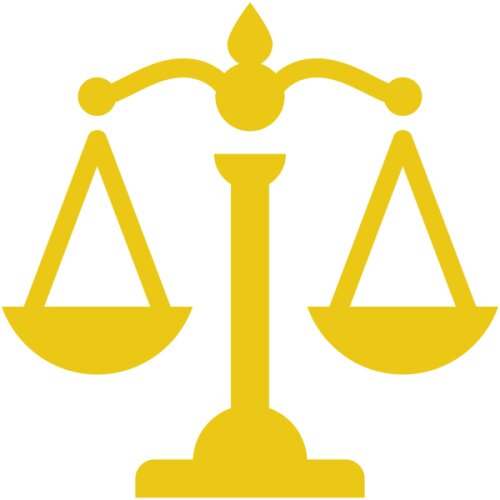Best Job Discrimination Lawyers in Newcastle
Share your needs with us, get contacted by law firms.
Free. Takes 2 min.
List of the best lawyers in Newcastle, South Africa
About Job Discrimination Law in Newcastle, South Africa
Job discrimination is an unfortunate reality that can occur in workplaces around the world, including Newcastle, South Africa. It refers to any adverse action taken against an employee based on characteristics such as race, gender, age, or disability, among others. These actions can manifest in hiring practices, promotions, job assignments, or terminations. South Africa’s legislative framework, primarily driven by the Employment Equity Act, seeks to eliminate unfair discrimination in employment and promote equal opportunity.
Why You May Need a Lawyer
Legal assistance may be necessary in a range of circumstances involving job discrimination. For instance, if you suspect that you did not get a job due to discriminatory reasons, or if you are receiving unequal pay compared to others in similar roles due to your race or gender, a lawyer can help assess your claims and guide you through the legal avenues available. Lawyers can also be instrumental in negotiating settlements, representing you in court or tribunals, and ensuring you understand your rights and the legal processes involved.
Local Laws Overview
In Newcastle, as part of South Africa, the key legislation governing job discrimination includes the Employment Equity Act and the Labour Relations Act. The Employment Equity Act aims to eliminate unfair discrimination in the workplace and promote a diverse and inclusive work environment. It requires employers to implement affirmative action measures to promote the representation of historically disadvantaged groups. The Labour Relations Act provides broader protection by prohibiting discrimination in employment practices. These laws form the backbone of legal protections against job discrimination and are enforced by various agencies, including the Commission for Conciliation, Mediation and Arbitration (CCMA).
Frequently Asked Questions
What constitutes job discrimination under South African law?
Job discrimination includes any unfair treatment based on personal characteristics such as race, gender, sexual orientation, disability, religion, and more. This can affect various aspects of employment, from hiring and firing to promotions and pay.
What should I do if I believe I am a victim of job discrimination?
Document any instances of discrimination, gather evidence, and consider reaching out to a lawyer or your trade union for guidance. You may also file a complaint with the CCMA.
Can I be fired for reporting discrimination at my workplace?
No, under the law, retaliating against employees for reporting discrimination or participating in discrimination investigations is prohibited.
What is the role of the Commission for Conciliation, Mediation and Arbitration (CCMA)?
The CCMA is a dispute resolution body that handles labor disputes, including issues of job discrimination. They offer services like conciliation and arbitration to resolve such matters.
How does the affirmative action policy work?
Affirmative action policies are measures intended to address past discriminatory practices by promoting equal opportunity and increasing representation of marginalized groups in employment.
Are there any protections for whistleblowers regarding job discrimination?
Yes, the Protected Disclosures Act protects employees who report wrongdoing or illegal acts, including discrimination they witness in the workplace.
What evidence do I need to provide for a discrimination case?
Evidence might include emails, witness testimonies, records of unfair treatment, and other documentation supporting your claim of discrimination.
Can a part-time, temporary, or freelance employee report job discrimination?
Yes, all employees, regardless of their employment status, are protected from discrimination under South Africa's labor laws.
How long do I have to file a discrimination claim?
It's important to act promptly. Generally, you must refer issues to the CCMA within 30 days from the date of the dispute, but it's best to confirm with a legal advisor as timelines may vary for different cases.
What are the possible outcomes of a discrimination case?
Outcomes can vary from compensation for damages, reinstatement in employment, promotion, or policy changes within the organization to prevent future occurrences.
Additional Resources
Several resources and organizations can assist individuals facing job discrimination in Newcastle. The South African Human Rights Commission (SAHRC) deals with human rights violations, including workplace discrimination. The Department of Labour can also provide guidance and information on employment rights. Trade unions available in Newcastle can be of assistance and provide support to affected workers.
Next Steps
If you believe you are experiencing job discrimination, it's important to act quickly. Start by documenting all instances of discrimination and gather any relevant evidence. Seek legal advice from a lawyer specializing in labor law to evaluate your case. You may also consider reaching out to the CCMA or a relevant trade union for initial advice and support. Taking these steps can help protect your rights and address any unfair treatment effectively.
Lawzana helps you find the best lawyers and law firms in Newcastle through a curated and pre-screened list of qualified legal professionals. Our platform offers rankings and detailed profiles of attorneys and law firms, allowing you to compare based on practice areas, including Job Discrimination, experience, and client feedback.
Each profile includes a description of the firm's areas of practice, client reviews, team members and partners, year of establishment, spoken languages, office locations, contact information, social media presence, and any published articles or resources. Most firms on our platform speak English and are experienced in both local and international legal matters.
Get a quote from top-rated law firms in Newcastle, South Africa — quickly, securely, and without unnecessary hassle.
Disclaimer:
The information provided on this page is for general informational purposes only and does not constitute legal advice. While we strive to ensure the accuracy and relevance of the content, legal information may change over time, and interpretations of the law can vary. You should always consult with a qualified legal professional for advice specific to your situation.
We disclaim all liability for actions taken or not taken based on the content of this page. If you believe any information is incorrect or outdated, please contact us, and we will review and update it where appropriate.









